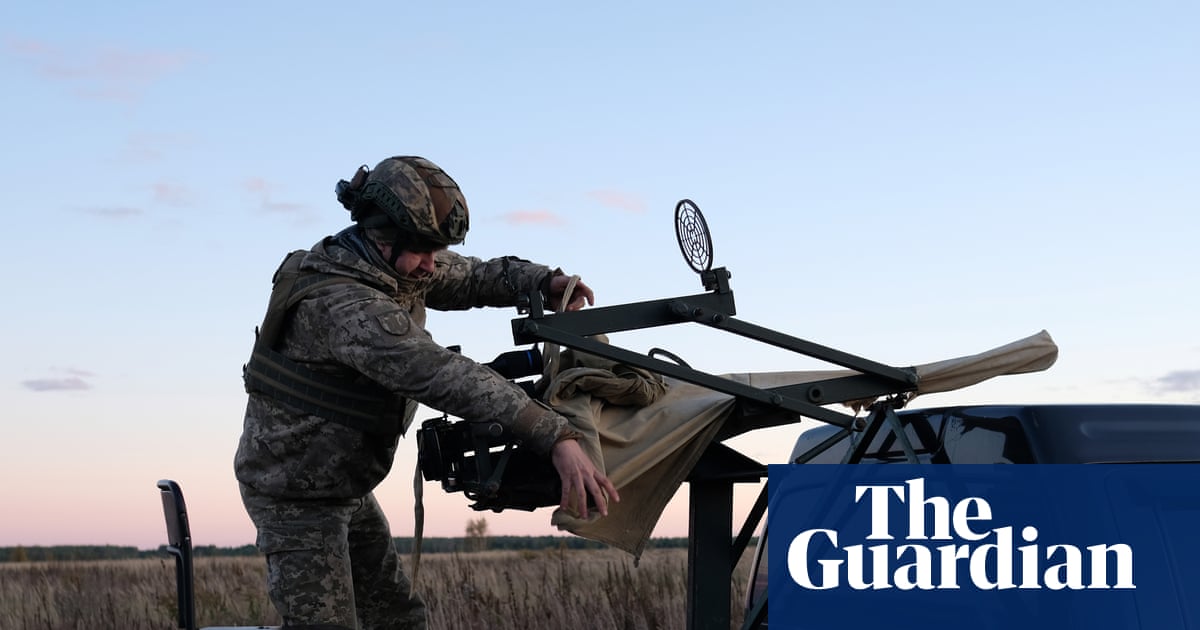
"First came the sound of drones. Then a boom that rattled windows. Shortly after that, two columns of black smoke rose over the Shebelinka gas processing plant in Ukraine's Kharkiv region. Towering flames threatened storage tanks. A refinery worker emerged from the site. Russian drones and missiles had struck the plant at 4.30am, he said. For now there was nothing for the fire crews to do but to stand back and watch."
"With each air alert sometimes six times a day soldiers with pick-ups and machine guns have 10 minutes to reach their firing points and track the trajectory of the incoming munitions on a tablet. It is only at about a distance of 1km that the gunner can see the target. Then there is less than a minute, sometimes much less, to shoot it down."
At dawn Russian drones and missiles struck the Shebelinka gas processing plant in Kharkiv, producing booms, two columns of black smoke and towering flames that threatened storage tanks while fire crews stood back. Moscow has intensified aerial warfare, launching thousands of drones, missiles and glide bombs. Air defence troops near the front face worsening interception conditions. Soldiers have roughly ten minutes to reach firing points, track incoming munitions on tablets and often cannot visually identify targets until about one kilometre, leaving less than a minute to engage. Hitting small, fast aerial targets' engines or explosive payloads remains extremely difficult, with far fewer successes than expected as dozens of drones transit from Russia's Bryansk region and across Belarusian airspace.
Read at www.theguardian.com
Unable to calculate read time
Collection
[
|
...
]